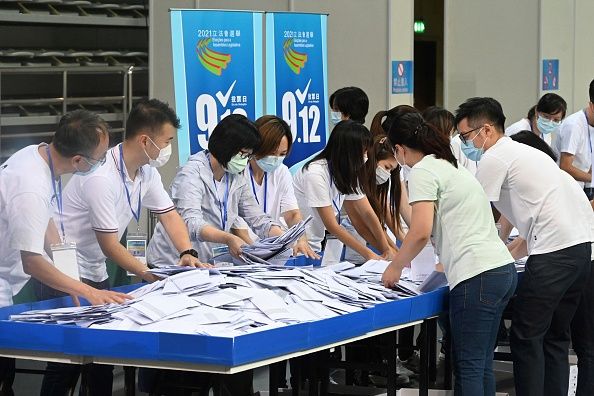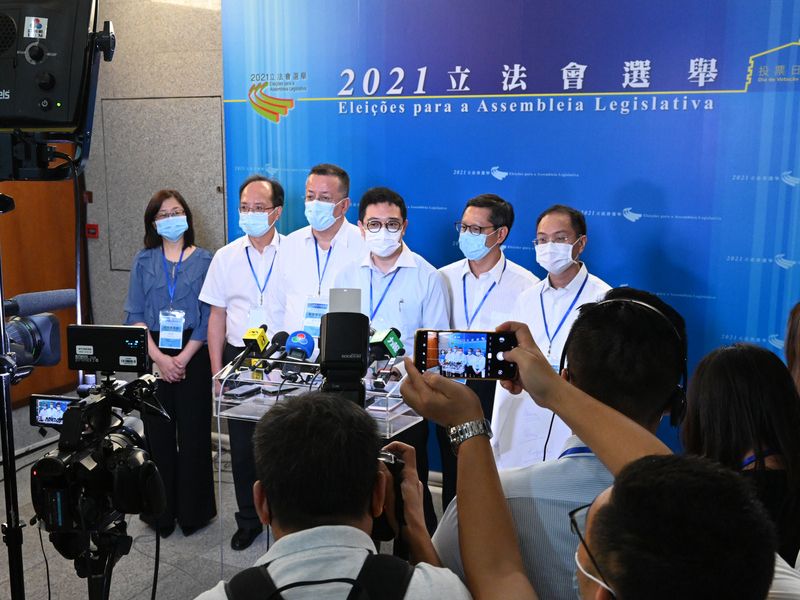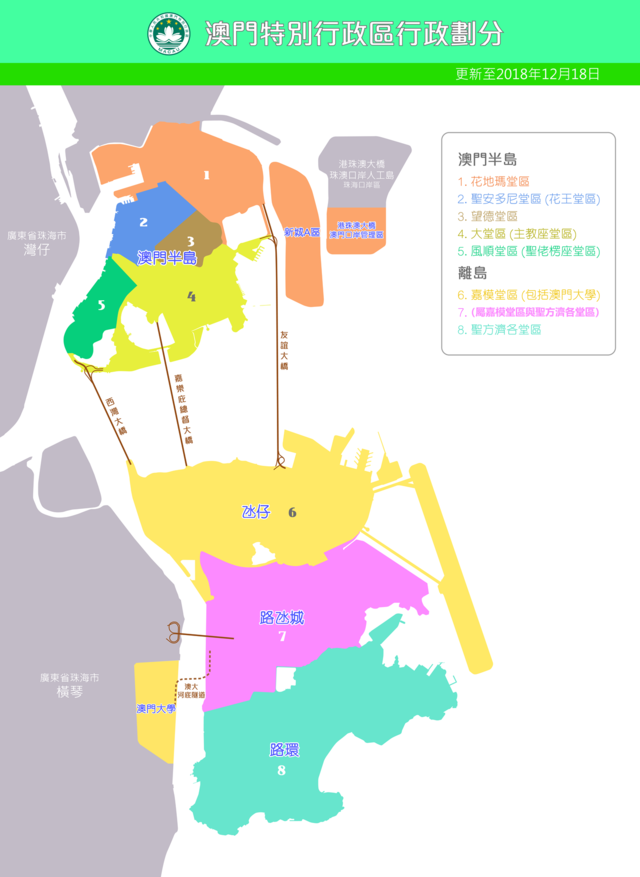
澳門90後|社會科學碩士|財經媒體|澳門研究| 生活瑣事
Are the election results really related to the epidemic and public sentiment? A Brief Comment on the Quantitative Election Research in the 101st Issue of "Macao Studies"
Author: The Man in the Room (Social Science Researcher)

In the first article , I commented on three qualitative studies on the 2021 Macau Legislative Council Election in the 101st issue of Macau Studies. In this article, I will review the only remaining quantitative study: "Voting Habits, Election Competition and Turnout Rate - An Empirical Study Based on the Election of the Seventh Macao Legislative Council" by Fok Weidong and Huang Weiqi.
As in the previous article, let’s briefly talk about the basic requirements of quantitative research before we start. Compared with qualitative research, quantitative research has more standard and objective criteria in operation, which is why it looks more "scientific". Specifically, the basic criteria include: using appropriate data to answer the research question posed, measuring variables with reliability and validity, and setting statistical models correctly.
If the above "criteria" are not met, they are all "mishaps", which directly affect the reliability of the research conclusions. From this, I can first make a basic evaluation of the article "Voting Habits, Election Competition and Turnout Rate": it is unqualified because it has committed more than one "hard injury".
Research flaw one: data usage
The most serious "bug" is that the data used in the study does not answer the research question raised by the author. The author's research question is: What are the factors influencing the low turnout in the 2021 Legislative Council election? The authors present two groups of possible factors in the text.
The first group of factors is that "the epidemic situation, epidemic prevention and control measures and weather are the main reasons that affect voting intentions" (p. The second group is based on the four factors of "citizenship", "political interest and party identification", "voting mobilization" and "competitiveness" that the author summarizes based on the existing research literature.

No matter which set of factors, it affects the willingness to vote at the individual level, which is why I said in the previous article that if you want to study whether there is a relationship between DQ (disqualified) and low voting rates, the most scientific way is to The same voters were surveyed before and after the election. To my limited knowledge, there is no such survey data in Macau, which means that the possible influencing factors of the above two groups are actually unknown.
What first intrigued me about this article was what data the authors used for the analysis. As expected, the authors were unable to measure the first set of influencing factors, and could only use other surrogate data to measure the second set of influencing factors 'indirectly', since there were no survey data on voting intentions and behaviors at the "individual" level described above. , for example, use "Paris' voter turnout" instead of "Individual votes or not".
However, empirically, "parish" and "individual" are two units of different dimensions. The research hypotheses deduced by the author based on the existing research are all based on "individual" as the unit of analysis. In this case, can it also be It can be applied to the "parish", not only lacks logical proof, but also has no theoretical support.
Research flaw 2: research hypothesis
This also leads to other "mishaps" because the research theory and the variables being measured are not in the same unit. For example, unfounded research hypotheses, such as Hypothesis 1: "The voter turnout of the same polling station or parish in the previous direct election showed a significant positive correlation with the voter turnout of the current election", as the author himself said "voting itself The habits that are formed will increase people's civic awareness and belief in full political participation, so that the act of voting one time greatly increases the odds of the next election."

But what we are talking about here is the "individual" level, which is not the same unit as the "parish" in Study 1. A frequent voter, you can reasonably predict that he is likely to continue to vote in the next election, but what is the relationship between the parish turnout rate in the last Legislative Council election and the overall turnout rate this time, I don’t understand.
Hypothesis 2: "Voter support for 'democrats' is significantly negatively correlated with turnout." Also a hypothesis that misuses research theory in the wrong unit. As I said in the last article, the "democrats" are at an obvious disadvantage in terms of resources compared to the traditional five major associations or associations. Voting mobilization relies on ideas. In this case, the logical reasoning should be that the more people who agree with the "democratic" idea, the more likely they are to vote.
On the contrary, the "democrats" are DQ, and individuals may choose to vote for others, not vote or vote white. That is to say, whether an individual supports the "democratic faction" is directly related to its vote rate, but there is no logical direct correlation between it and the overall vote rate.
In fact, considering that the "democratic faction" has always had a fixed vote rate and its supporters are a minority of voters, if the mobilization ability of traditional associations and local associations is strong enough, it is theoretically possible to make up for the lack of votes in the seventh Legislative Council election. With the 10% turnout, and because Macau does not have a regular election survey, we won't know whether those "democracy" supporters have actually voted.
In this case, why do the authorities need to spend their time trying to convince Macau people that the epidemic and the weather are all to blame?
#Number of articles: 1️⃣0️⃣8️⃣
💬 Stories of [Telling Stories on the Frontier of the Empire] |📁Article List |👍Facebook Page |📣 Call for Papers

Like my work?
Don't forget to support or like, so I know you are with me..

在帝國邊陲講故事

四個社會科學和歷史背景的作者,嘗試訴說一座名叫「澳門」的看不見的城市。它的故事不止關乎自身,也關乎背後的帝國和邊陲。 👇我們的故事|Podcast|免費電子報|Patreon https://linktr.ee/macaology_empire
Comment…